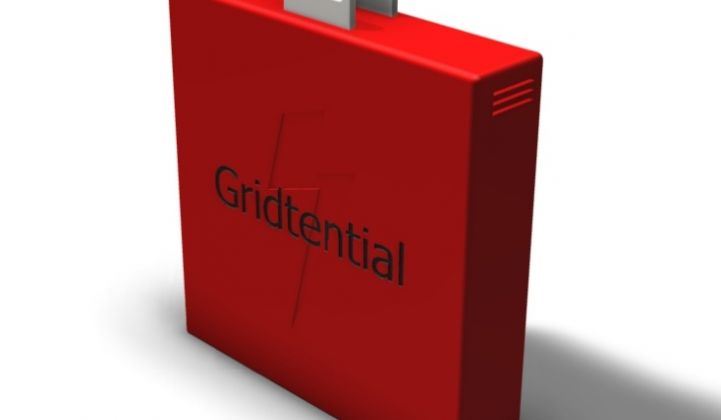Gridtential is an early-stage startup looking to innovate and disrupt the long-established lead-acid battery market. The firm just raised $1.1M in a seed round led by The Roda Group.
Christiaan Beekhuis, the founder of Gridtential, sees parallels between the battery market and the solar photovoltaic market. Despite the challenges to crystalline silicon (c-Si) solar, c-Si has continued to improve its performance -- and few other technologies have been able to challenge silicon's dominance.
Beekhuis believes that the same is true for lead-acid batteries and that the incumbent lead-acid platform may still have a lot of life left in it.
The market for lead acid batteries was $30 billion in 2010. Gridtential is not going after the starter or ignition battery markets. Instead, Gridtential is going after the $3 billion traction market (wheelchairs, golf carts, industrial vehicles like forklifts or scrubber-sweepers) and the $5 billion stationary market (off-grid applications, telecom cell tower backup). The CEO mentioned micro-hybrids as a potential market as well.
Beekhuis is formerly of solar monitoring company Fat Spaniel, acquired by Power-One in 2010. Michele Klein, formerly of Applied Ventures, and Peter Borden, formerly of Applied Materials Solar Group, are the other co-founders of Gridtential. It was Borden who came up with the manufacturing innovation that might move lead-acid ahead.
Beekhuis called it "applying modern manufacturing methods to improve an old technology." Borden's invention uses a "unique plate substrate" and "a full architecture to stack the plates. It's a full battery invention based on manufacturability and scalability," according to the CEO. The firm intends on building batteries.
With a proposed automated manufacturing process courtesy of Intevac, the company is "looking at scalability first, because we don't have to build a new chemistry. The automated tools [from Intevac] allow us to apply a modern technology to the well-known chemistry of lead-acid." The manufacturing process is based on technology and equipment from the semiconductor and disk drive industries.
The Roda Group's description of Gridtential claims that "total system cost is expected to be less than half that of existing products."
The CEO added, "It's very expensive to ship batteries. If you can highly automate your process, suddenly the advantages that China have may not be so great. We may be able to have an American-made product and focus on the North American market."
The CEO sees different chemistries suited for different applications and believes that "where lead-acid is used today, we'll have a very significant advantage."
Regarding sales channels for these batteries, "The ideal partner is a large distributor. They understand the application and have access to the customer." But the CEO acknowledged, "First we'll have to find end customers."
As far as the utility-scale grid storage market is concerned, Beekhuis said, "People are guessing. The market doesn't exist yet because there is no low-cost, high-performance market product. We see that market as nascent and pretty far in the future."
"We're trying to be realistic about what it takes to break into the utility market," he added. "It takes quality and reliability data and life cycle data before a utility adopts. An advantage is that lead-acid is known and low cost." However, he acknowledged, "We'd like to generate revenue in the meantime."



